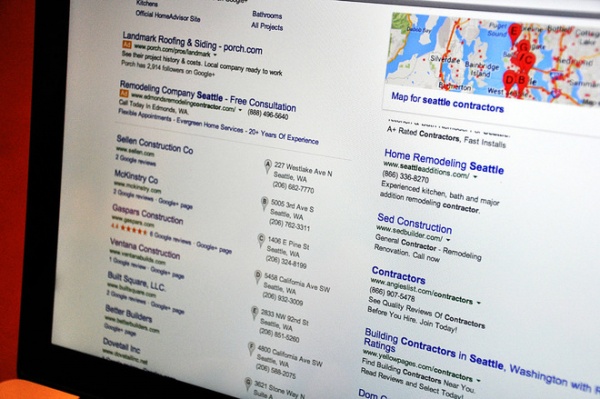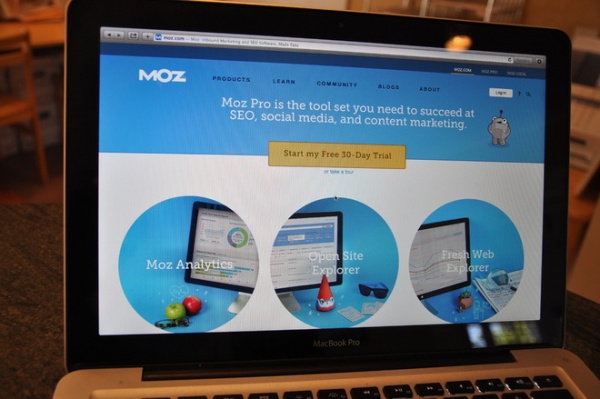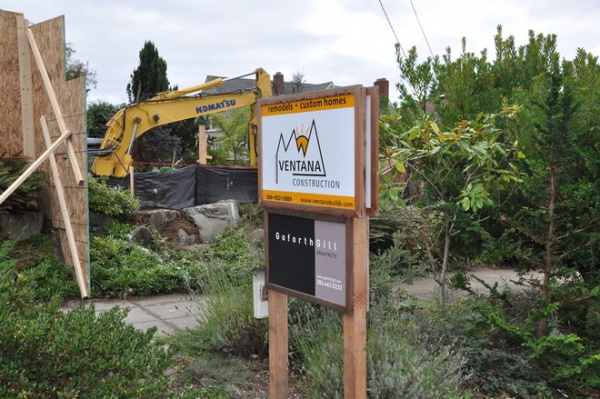Contracting Practice: Marketing Your Business
http://decor-ideas.org 07/21/2014 21:13 Decor Ideas
You have the talent, the staff and the business processes in place to build great projects. So where are all the clients? Done well, marketing can keep customers walking through the door despite the ups and downs of the economy. The keys are to keep marketing even when you’re busy and to diversify the ways people hear about your business.
Here’s a look at some of the tried and true and newer ways that you as a contractor can market your business.

Word of mouth. For many contractors this is the most valuable and consistent form of marketing. Doing good work leads people to recommend you to their friends, family and coworkers, who are more likely to listen to the enthusiastic endorsement of those they trust than go to neutral sources like ads.
You can cultivate word-of-mouth leads by staying in touch with clients in a variety of ways: newsletters, holiday cards, postcards, check-ins about warrantees etc. We send an annual holiday card with photos of the previous year’s projects, and have a fall party at our office for clients and architects. It’s a great way to see everyone, and it keeps our company at the top of people’s minds at least twice a year.
When you receive a lead from a customer referral, the job is really yours to lose. Your previous clients have already sold them on what a good company you have. Now it’s up to you to decide if it’s a good fit and then move ahead.
Architects and designers. Design professionals want and need to have contractors they trust to build the great projects they design. Most architects would rather their clients hire a contractor who they know does good work, rather than one with whom they are unfamiliar. That means they often have referral lists of contractors that they provide to their clients. Those clients come to contractors almost completely prequalified: They have already invested in plans, they know approximately what the project will cost, and they are usually ready to build within the next six months.
Architects almost always refer people to companies of similar size and with similar qualifications. That means your main challenge will be to differentiate your company to demonstrate why you’re the best company to hire. You might stress your success at customer service or communication, or your great staff and trade partners.

The “zero moment of truth.” Over the past 10 years — and more intensively in just the past five years — the Internet has completely changed the way most people search for contractors and other service professionals. Before we had such a ubiquitous source for information, people might receive a referral from a friend or an architect and simply ring them up and set an appointment. Now they may search on Google or Houzz first, look at a company’s portfolio and website, read reviews and look up licensing. They might even search for the owners’ names to see who they are and what their presence is like online. If satisfied, they will then pick up the phone and call, or send an email via the Contact Us section of the company’s website. Or they may be diverted to another company’s website that looks interesting and call that company instead.
This phenomenon has become so widespread that Google has named it ZMOT— the zero moment of truth –and identified it as the interrupter of the traditional marketing cycle. ZMOT is essentially the moment when a potential customer goes to the Internet instead of picking up the phone.
This sea change in the way that people research and determine who they will call for services is causing major revisions in marketing plans. Contractors are putting more time and money into their websites, and in making sure that their online search results are positive and professional. Many also invest in online ad campaigns so that information about their company appears alongside organic search results or in the middle of a Facebook feed.

Search engines. To get the biggest bang for their Internet buck, many companies pay for search engine optimization (SEO) work on their company website. The goal of SEO is to make sure content on a website is labeled in such a way that it results in high organic search results. Organic results (as opposed to paid results from ad campaigns) are the sites that come up when a search term is entered, like “remodeling contractors” or “custom builders.” The higher the organic result, the more likely someone will click on your site.
SEO is helped by having useful, relevant content on the website, which takes some work of its own. Regular updates and added content, photos, video and blog entries all add interest and improve organic results.
Done well, SEO not only can drive people to a website, but can encourage them to provide their information or pick up the phone and call. There are companies that specialize in improving the SEO of websites — so many, in fact, that as a contractor you’re likely to get several calls and emails each week offering to improve your SEO.
If you wonder about the effectiveness of your SEO efforts, do a Google search for your company name and see what comes up. If your website is not the first result, you have some work to do. If you don’t have a website or want to improve yours, start by looking at the Houzz Site Designer, which lets you create your own company website free of charge.
Moz.com is a great source of information about SEO. They offer a beginner’s guide to SEO that is free to read. They also have a paid service that will monitor your performance on keywords, check links against competitors in your market, and make specific suggestions about how to improve keyword ranking for the words and phrases that are most important to your business.
We have used Moz for years to measure our SEO work, and we find it and Google Analytics invaluable for understanding who is visiting our website, and why.

The rest of the Internet. Aside from a company website, there are many opportunities to market your business online. Of course, Houzz offers the largest online collection of home photos, with mammoth organic results driving potential clients to see projects and find contractors in their area. These photos, as well as a Houzz professional profile, can be posted without a fee and can be an important piece of marketing.
Fee-based lead-generation services do their own SEO work to bring potential clients to their websites, gather their information and then sell that information to contractors who sign up for the service. Contractors tend to report mixed results from these services. When we first started our company, we used one of these services for several years. We did get several large projects out of the hundreds of leads we paid for, but spent a lot of time and money on leads that never even called us back.
Websites that post business reviews also have excellent SEO, and when you search for your company name, it will usually appear on the first page of results. This means you will have to monitor the sites and make sure they contain accurate information about your company. Responding to reviews can also help perceptions of your company, whether the review is positive or negative.
Social media sites such as Facebook, LinkedIn and Twitter can bring added power to your online marketing by getting your name in front of people who might not otherwise know about your company. If you structure your social media accounts to cross post (for example, a post on Facebook automatically posts to Twitter and LinkedIn), you maximize the reach of the marketing you do.
It’s unclear how online marketing will continue to evolve in the coming years, but it’s clear that the Internet will remain a powerful marketing force.
How to Rock Your Houzz Profile

Home shows and home tours. Home shows in large cities provide a central venue where potential clients can meet contractors and suppliers for a few days to more than a week. These large events can be a source of new work, and for some companies are the main source of their projects throughout the year.
Tours of new and remodeled homes can also bring in clients who might not otherwise find you. They also allow people to meet you in person and see your work firsthand.

Traditional marketing. Many contractors still swear by the more traditional forms of marketing: direct mail, newspaper and magazine ads, TV and radio ads, billboards and even door knocking. Jobsite signs can be particularly effective, because they raise name awareness in a neighborhood, especially when there are multiple jobsites in a limited area. Adding a real estate agent’s box to the sign with brochures inside encourages those walking the dog or passing by to get more information about your company, making it more likely they will remember your name and call.
Some companies also offer showrooms as part of their services. Having a showroom — particularly when it offers one or more cabinet lines — can bring in clients who might not otherwise find the company. They also are a valuable tool when a company combines contracting and design in one business.

Networking and donations. Networking with other professionals can also be part of your marketing plan. Joining national and local remodeling or home building organizations provides opportunities to grow your business and participate in advocacy for the industry. Local chambers of commerce, Rotary clubs and other community organizations provide networking opportunities and a way to stay connected with what’s important to your clients.
Donating locally can be great marketing too. Sponsor a local Little League team, donate to a school auction or put in volunteer time at a nonprofit. We recently were the drink sponsor at an auction event for a local theater. They made a beautiful metal “tree” with glasses suspended from the branches, and our name and logo were prominently displayed as the sponsor. Many people commented about having seen it and enjoyed it. Sponsoring creates name recognition and a good feeling about the company brand, and it helps support local organizations.
Be the expert. You already know you’re an expert in your field. Marketing can help demonstrate that to others and bring you work in the process. Offer classes or workshops about topics in construction. You will get brand recognition via the advertising and then the full attention of potential clients when they attend. Our company has done a Remodeling 101 class for years with an architect, in which we teach about the remodeling process. It has resulted in projects and a number of referrals, and keeps our name out there.
Another option is to reach out to media outlets to offer your expertise, ideas and content. If there’s a story on local housing, don’t you want to be the one quoted? Make sure it happens by forming relationships with the writers and editors of the real estate and home sections of your local newspaper, and offering up stories that other publications and websites can publish online.
Determining the best way to market your company can depend upon the focus of your business and the area in which you work.
Tell us: What marketing methods have worked best for you, and which ones have you tried and abandoned?
More Pro to Pro guides
How to create a free business website with the Houzz Site Designer
Related Articles Recommended












